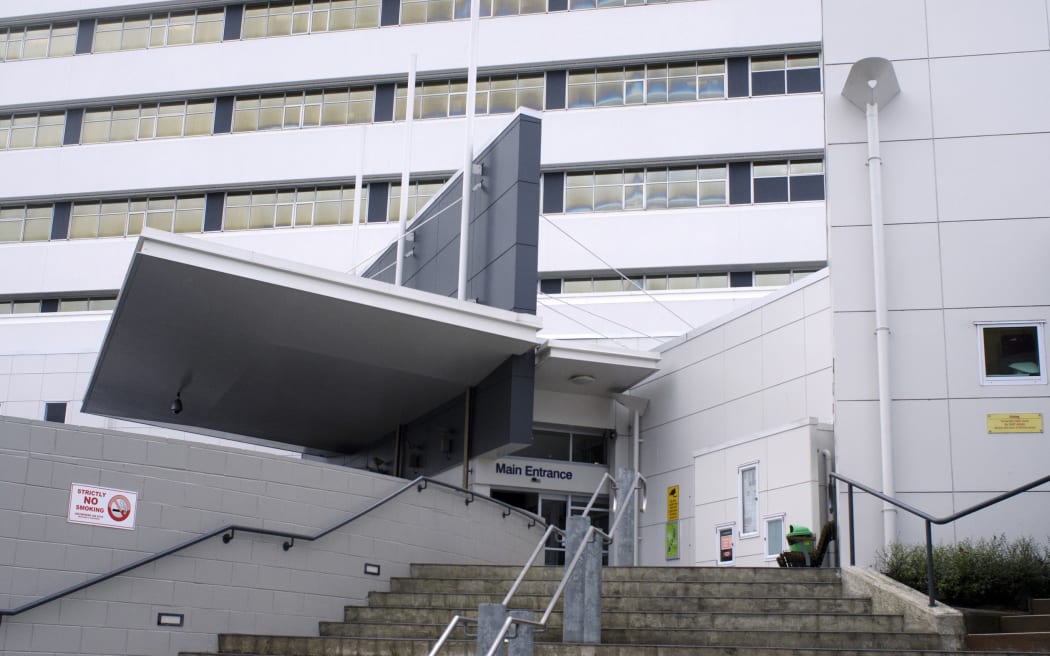
North Shore Hospital's ED has been described as unsafe for both patients and staff. Photo: rafaelbenari/123RF
Mental health patients are sometimes stranded for days in North Shore Hospital's emergency department waiting for a bed on a ward, and other patients are not on heart monitors when they should be.
The situation has prompted frustrated ED health staff, led by nurses, to make a formal health and safety complaint about the hospital on 26 October.
They said the ED was at "critical overload" and unsafe, warning that patients and staff could be harmed if it was not urgently fixed.
Their report outlined several key areas of risk.
Patients were waiting in ambulance bays because the emergency department was too full - but the three bays were also overflowing.
That meant up to 10 patients were waiting without assessment or proper oversight, some requiring cardiac monitoring, often with one nurse trying to look after them all.
"No monitoring, no oxygen, no suction, no call bell, lack of dignity and privacy and inadequate infection control measures," the report said.
People turning up with mental health illness were on the rise but the wards were so full patients could be stranded for days in waiting to be admitted.
There was not always a mental health nurse rostered on.
"The legal rights of sectioned patients in ED are compromised due to the lack of beds and appropriately trained staff," the report said.
"These patients should not be shut in a room with no windows for up to four days awaiting an inpatient bed."
The number of people turning up affected by drugs and alcohol was also on the rise, the report said
Violence against staff was also increasing but security staff were stretched thin, often dealing with incidents in other parts of the hospital.
"It is perceived by the public that healthcare organisations will provide a safe and secure environment for staff, patients, visitors but in reality this is not happening."
The emergency department was staffed to deal with about 35 patients, but regularly had more than 60.
High patient numbers meant nurses were "rationing care" and were sometimes stepping up to do work they were not fully trained to do.
They worried they were at an increased risk of making an error or failing to identify a deteriorating patient, it said.
"Staff are distressed when coming to work. This is the perfect climate for a sentinel event or potential harm to patients and that nurses will be held accountable."
Many nurses were feeling anxious and not sleeping before their shifts.
The complaint was made in the form of a Provisional Improvement Notice on 26 October, a process under the Health and Safety Act to demand action on high risk risky working conditions.
The report authors, the ED's health and safety reps, asked for a series of remedies to address the situation, many of them aimed up freeing space in the hospital.
They included increasing nursing staff to reflect the current high levels of patient, and improving staff to patient ratios for the most high risk parts of ED.
There were hospital-wide suggestions aimed at freeing up more beds so patients could be admitted quicker, including more weekend rounds by doctors to allow patients to be sent home and a lounge for patients who were about to be discharged to wait, rather than their own beds.
Te Whatu Ora Waitemata pledge more support
A spokesperson for Te Whatu Ora Waitemata, which runs the hospital, said it had taken the concerns seriously and would work closely with the staff to look at what they can do to support them more.
Anyone who needed hospital level care at North Shore Hospital ED would continue to receive it, he said.
However, those with non-urgent needs should consider visiting their GP, pharmacy or accident and medical clinic, he said.
Association of Salaried Medical Specialists executive director Sarah Dalton said the number of specific problems piling up at the hospital was serious as was the fact that the issue had been going on for such a long time it was almost business as usual.
However, North Shore was not alone - many other emergency departments were in the same situation, she said.
It was very stressful and it was often nurses who bore the brunt of that, she said.






